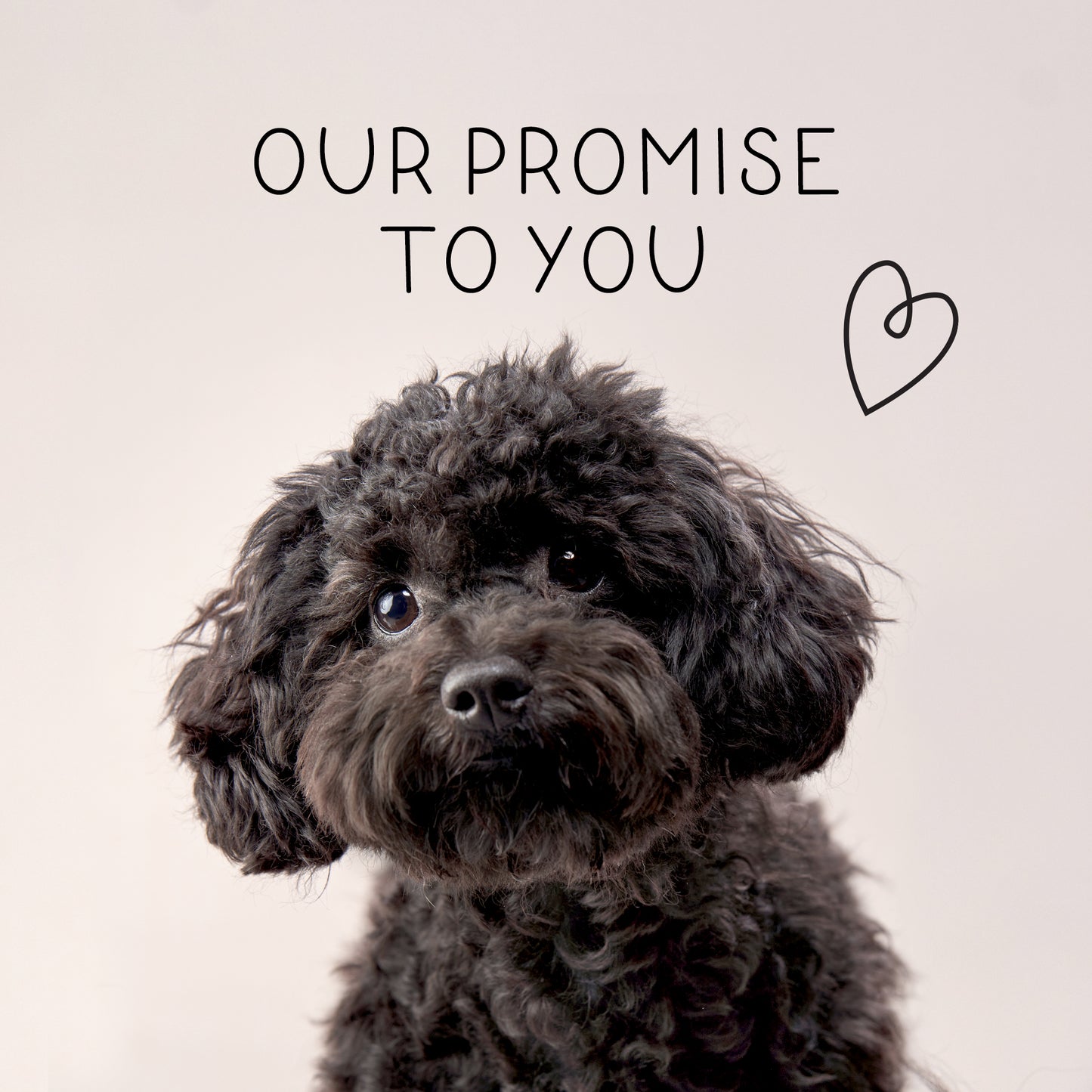
A Guide to Stress-Relieving Activities for Dogs
On days that we’re feeling stressed, we can always count on our furry friends to provide an instant pick-me-up. In fact, research has shown that petting our dogs can lower our stress hormone cortisol, while playing with our pups can increase the levels of our feel-good hormone oxytocin. Knowing the positive impact that our dogs have on our daily lives, especially when we’re feeling stressed, it’s only natural that we want to return the favor and ease any stress or anxiety that our dogs may be feeling.
But how can we best soothe our dogs when they’re feeling stressed? First, we need to learn the signs of stress in our dogs. Then we can calm our canine companions down through effective stress-relieving activities. So, let’s explore the perfect balance of awareness and action to ensure that our four-legged friends live their happiest, stress-free lives.
5 Common Signs Your Dog is Stressed
Life can be ruff for dogs. Things like a change in their routine, loud noises from thunderstorms, and separation anxiety can cause your dog a lot of stress. While every dog is certainly unique, here are five common signs that your dog might be stressed.
- Noticeable Changes in Behavior: No one knows your dog the way you do. If all of a sudden, your dog’s behavior starts to change, it might be due to stress. For example, we all know that vocalization is a normal form of self-expression for dogs. However, if you notice your dog is excessively whining or barking, or, on the flip side, unusually quiet, chances are something is stressing your dog out.
- Unusual Eating Habits: Stress can impact your dog’s appetite. While some dogs may lose their appetite and not be hungry during meal time, others might stress eat and crave extra food. Take note if your dog all of a sudden starts to have unusual eating habits.
- Digestive Issues: Similar to people, stress can lead to digestive issues such as diarrhea or constipation. Keep tabs on any irregularities when it comes to your dog’s bathroom habits.
- Unexplained Panting: It’s common for dogs to pant in the summer when it’s hot out, or after an intense exercise session. However, unexplained panting and restlessness can be a sign of stress.
- Wanting to Hide: If your usually outgoing and sociable pup starts hiding behind you or nudging you to keep going when you’re around other people or dogs, look into what’s causing that behavior. Some dogs tend to seek solitude when they’re stressed.
5 Stress-Relieving Activities for Dogs
When you notice your dog is stressed, help your pup relax and unwind by engaging in these fun and interactive stress-relieving activities that are designed to nourish the whole health of your dog.
- Dog Yoga: By practicing dog yoga, or doga, with your pup, both of you can relieve any anxiety, worry, and stress that you’re feeling through poses like downward dog and forward fold. It’s also a fun bonding activity for both of you, especially as you teach your dog the poses and then see your good boy or girl in action.
- Puppy Massage: Since anxiety often causes muscles to tense, giving your puppy a massage is a great way to alleviate some of that tension. Start by petting your dog’s neck and then work your way downward with long strokes. Notice if there are certain areas that seem to hold more tension than others. Then in the future, hone in on those specific areas to relieve the tension for your dog.
- Calming Music Sessions: A recent study revealed that noise sensitivity, especially to noises like fireworks or thunderstorms, was the most common anxiety trait for dogs. Since research has shown that certain types of music can help reduce anxiety, lower heart rate and respiration, and alleviate certain behavioral challenges in pets, playing soothing music for your dog, especially during thunderstorms or nights when there are lots of fireworks going off, may help lower stress and reduce your dog’s anxiety.
- Doggy ‘Zen Den’ Time: A ‘Zen den’ is a quiet, calm, and relaxing space specifically set aside in your home that allows you to take a break from the stresses of everyday life. In addition to creating a Zen den for yourself, create a doggy Zen den for your pup in a cozy area of your home. The doggy Zen den should include your dog’s favorite toys, a comfortable bed, and anything else you know your dog will love. Then when your dog is feeling overwhelmed, instead of acting out, your dog will have a safe space to rest and recharge.
- Nature Walks and Outdoor Adventures: A change of scenery can do wonders for your dog, and yourself! Not only does being outdoors help reduce boredom, anxiety, and depression, sunlight also provides a natural source of vitamin D for your dog. Outdoor adventure time also gives your dog an opportunity to exercise, which helps with weight control since regular exercise outdoors can help your dog maintain a healthy body Plus, the sights, sounds, and smells of nature provide sensory enrichment for your dog, helping to distract your pup from daily stressors and boost your dog’s overall well-being!
--















